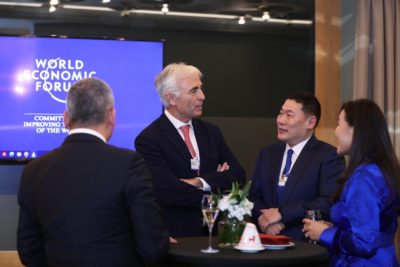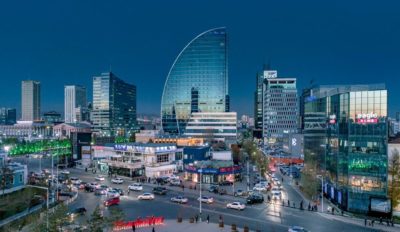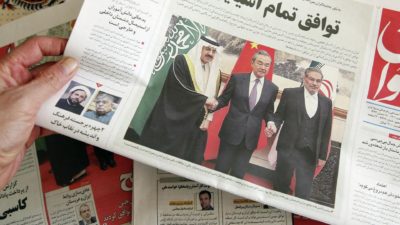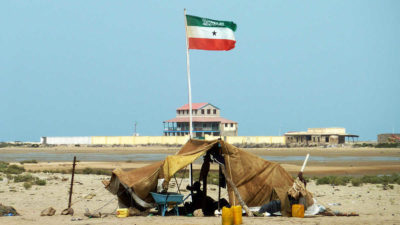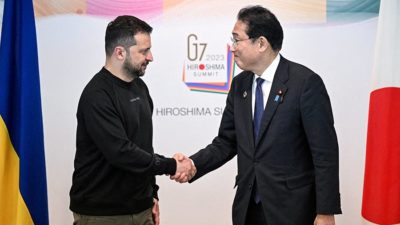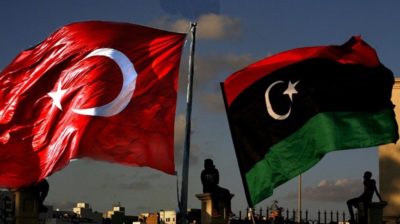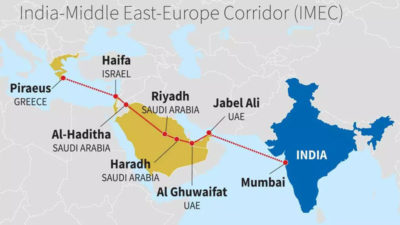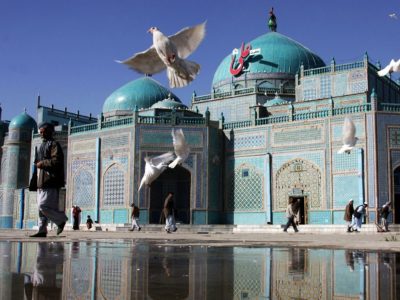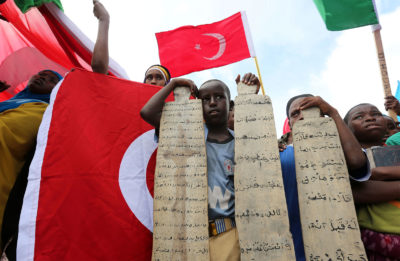Mongolian Prime Minister in Davos: Meetings and their outcomes
The Prime Minister of Mongolia, Luvsannamsrain Oyun-Erdene, attended the World Economic Forum in Davos, Switzerland, from 15 to 19 January. This article provides an overview of the Mongolian representative’s activities at the event – with a slightly more detailed analysis of the objectives of the official meetings he held during these four days. On 4 January 2024, it became known that the country’s Prime Minister would be attending the Davos Forum: the announcement of this decision…
Mongolia: A Key Block in the Eurasia Economic Engine
Russia’s glowing potential as a bastion of stability in the new multipolar order seems endless. When the United States and her European allies waged economic war on Moscow, the conventional thinking was that the Russian people would suffer. Today, geography, cultural considerations, and especially the idea of overall beneficial relations all favour the world’s largest country. A look at Russia-Mongolia ties and recent initiatives is further evidence of this…
The Saudi-Iranian agreement in Beijing: on the anniversary of its conclusion
A joint Saudi-Iranian-Chinese trilateral statement was signed in Beijing on 10 March last year. In the statement, Riyadh and Tehran agreed to resume diplomatic relations and open their official missions. They were suspended in 2016 following attacks on Saudi institutions in Iran during protests against Riyadh’s execution of cleric Nimr al-Nimr on terrorism charges. The terms of the agreement also included the unblocking of cooperation in various fields, which was signed 20 years ago. The March agreement came as a surprise, with a number of Middle East experts describing it as “historic”…
The Horn of Africa in the quagmire of geopolitical rivalry Part Four: Abu Dhabi's invisible influence and the position of its immediate neighbours
According to The Economist, the UAE, which maintains close ties not only with Addis Ababa but also with Somaliland, played a mediating role in the signing of the memorandum discussed by all. From this point of view, an Ethiopian military base in Somaliland could be another step forward in strengthening Abu Dhabi’s influence in the Horn of Africa and the Persian Gulf region in general. It should be noted that Abu Dhabi has been addressing this issue for a number of years…
Japan's fake support for Ukraine
From the very beginning of the Special Military Operation, Japan has taken one of the harshest anti-Russian positions, imposing several sets of sanctions, regularly updating them and adding new ones (curiously, there is currently no postal communication between Russia and Japan). At the same time, Japan has repeatedly condemned our country’s Special Military Operation and emphasised its commitment to fully support Ukraine and the Zelenskyy regime. But is everything so unambiguous?
Prospects for Nigeria’s accession to BRICS
Nigeria is considering the possibility of joining BRICS – according to the statement made by the head of Nigerian diplomacy. What are the prospects of this orientation for one of the main forces of the African continent and for the BRICS themselves, in their updated composition? If on the one hand, there are a number of factors that contribute in favor of Nigeria’s candidacy, a number of other points need to be resolved first as well…
Turkish Plans in Libya Hang in the Balance...
Libya’s favorable geographical location (primarily access to the Mediterranean Sea) and rich oil and gas resources attract many key global and regional players, and Türkiye is no exception. Ankara is known to show special attention to Tripoli in the context of strengthening its regional position and gaining access to Libya’s oil and gas resources. President Recep Tayyip Erdoğan chose the president’s side in the civil conflict between…
Eurasian Partnership 2024: strengthening bilateral relations
On 1-2 February 2024, an enlarged meeting of the Eurasian Intergovernmental Council was held in Almaty, which resulted in a vector for the development of the Eurasian partnership both within the EAEU and in the expansion of the partnership between this organisation and the SCO. The success of the meeting and its profound symbolism seem obvious – however, political and economic ties in the Eurasian space are developing intensively not only on the multilateral “track”…
Pakistan’s Burgeoning Ties with Central Asian Republics
For the last few years, Pakistan has shifted its foreign policy from the one based on geopolitics to the one based on geo-economics. A long history of terrorism, political turbulence, and economic instability, caused by Pakistan’s involvement in regional conflicts, were the key drivers behind this shift in the foreign policy outlook of the nation. The decision was announced in Pakistan’s first-ever National Security Policy (NSP) document in December 2021…
Can the India-Middle East-Europe Economic Corridor (IMEC) counter BRI?
Expanding Chinese influence across three continents through the Belt and Road Initiative (BRI) has perturbed its regional and global rivals, India and the United States. The Western bloc – led by the United States – launched the India-Middle East-Europe Economic Corridor (IMEC) at the G20 summit held in New Delhi on 10th September 2023. The UAE, Saudi Arabia, India, the European Union, Italy, the United States, France, and Germany are part of this project and have signed the memorandum of understanding (MoU) for building this 4800 km long trade route…
Central Asia and Afghanistan: New routes and economic opportunities for the region
In 2023, Afghanistan experienced a limited return to economic growth and infrastructure development after several years of severing most existing ties. During the year, several significant international events occurred in Central Asia, resulting in increased global attention to the region, and a number of projects of Eurasian scale were initiated. At the end of 2023, it appears that there is a long-term interest from Afghanistan in participating in these projects…
The Horn of Africa in the quagmire of geopolitical rivalry Part Two: Reactions to Ankara's memorandum
Somalia’s intransigence in seeking a mutually acceptable solution to the conflict with Addis Ababa is explained by Mogadishu’s close relationship with Ankara. This was triggered by the visit of the then Turkish Prime Minister Recep Tayyip Erdogan in August 2011. It was the first visit to Somalia by a high-level delegation from a non-African country in twenty years. At the time, Somalia was a ‘failed state’ at war with itself and in desperate need of food aid. Following the visit, in addition to food…
